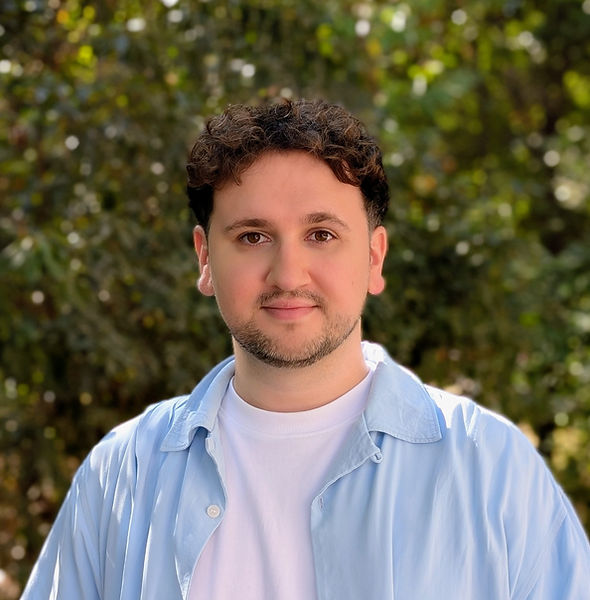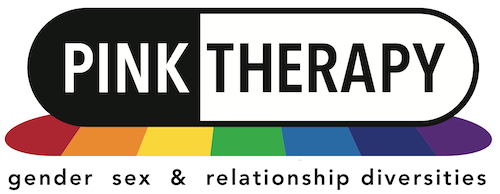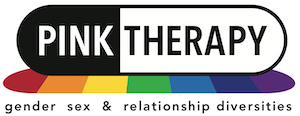Adam Zubricky
About the Therapist
I'm a psychodynamic psychotherapist specialising in Gender, Sex/Sexual and Relationship Diversity, including LGBTQ+ identities. My approach is a carefully weighted balance of support and challenge, of grounded care and gentle nudging: I am not one of those therapists who just sits there quietly and nods, nor do I tell you what to do or how you should be. Instead, I will help you understand yourself better and, through that, make better sense of your difficulties. I am committed to helping you explore what makes you you without telling you what to do or making you feel like you ought to be different.
Holding a Master's in Psychodynamic Counselling and Psychotherapy, my practice integrates psychodynamic thinking with a focus on socio-cultural dimensions and trauma-informed care. My particular areas of interest include Gender, Sex/Sexual and Relationship Diversity, issues related to LGBTQ+ identities, sexual violence, loss and bereavement, migration, culture shock, the impact of Covid-19, spirituality as well as unique challenges faced by performers, athletes and artists. Fluent in English, Slovak, Czech, and Danish, I also specialise in working with expats and those navigating multiple languages and cultural contexts.
My premises are based in Golden Square, at the heart of London's West End and Soho and are within walking distance from Piccadilly Circus, Green Park, Oxford Circus, Leicester Square and Tottenham Court Road stations.
Therapy with me
The type of therapy that I offer, psychodynamic therapy, is sometimes referred to as “depth therapy”. This is meant to denote the fact that a psychodynamic therapist looks “beneath the surface” of what is apparent, trying to understand what might be going on underneath a particular problem, struggle, worry or difficulty. This approach can help to deepen your understanding of who you are and what your issues might be about, and, in doing so, allow you to navigate the world in a better way.
While staying true to the psychodynamic way of working, every therapist has their own unique way of approaching the work. My own approach is that of curiosity, coupled with clarity and kindness. Within the safety of the therapeutic relationship, we will explore whatever might feel important for you. You will lead the exploration by saying anything that comes to your mind and feels important, and I will convey back what I am hearing. I will be respectful of the pace and direction of the exploration, but I will also be curious about what might be going on underneath what you say, gently nudging you and pointing out any patterns or links I observe. My approach is rooted within the belief that the parts of us that know where we need to go and what we need to address are often outside of our awareness. I therefore see my task as that of creating a space in which these parts can come out and be heard. To achieve this, I believe good therapy needs to provide a combination of empathic caring and support with gentle nudging and challenge, and we will work together to find the right balance between these two.
The way I envision my role in your therapy is that I walk alongside you while you explore your inner world. I am not there as guide – I do not give directions or suggest going a particular way. Instead, I trust that there is an intuitive compass within you that will guide us where you need to go, and my job is to enable you to tune in to it. I also trust that wherever we end up going, we will find some clues: something useful that will help you to make a better sense of your difficulties. In this way, I see my role as that of a knowledgeable companion: of someone who has a good working knowledge of the general terrain of the human mind and can thus help to spot the important hidden features of the landscape and provide support when the terrain gets particularly difficult.
In practice, this means that instead of offering advice or telling you what to do, I will help you understand yourself better and, through that, make better sense of your difficulties. I am committed to helping you explore what makes you you without telling you what to do or making you feel like you ought to be different. In relation to what makes us who we are, I have experience working with people whose difficulties are around their identities as well as with people whose identities are unrelated to what they come to therapy for. I also believe that who we are and how we are seen by those around us has a direct impact on how we move through the world and feel about ourselves, and I am thus deeply committed to anti-oppressive practices, inviting all aspects of self to the therapy room.
- Gay
- Queer
Registrant of the British Psychoanalytic Council (BPC): see details
MBACP Sen Accred (Senior Accredited Member of the British Association for Counselling and Psychotherapy): see details
Registered Practitioner of the British Association for Performing Arts Medicine: see details
-
- Master’s degree in Psychodynamic Counselling and Psychotherapy (distinction) from Goldsmiths, University of London
-
- Bachelor’s degree in Language and International Studies with a focus on intercultural communication from Aalborg University, Denmark
My approach
An important part of therapy is working out whether you feel like I am the right fit for you and the right person to talk to about what’s troubling you. My primary way of therapeutic thinking and working combines a variety of schools falling under the psychodynamic umbrella, such as psychoanalysis, attachment theory, relational and object relations. My training put a strong emphasis on the socio-cultural dimensions of your situation, as well as the effects of trauma, so, alongside the traditional exploration of your inner world, we might also explore the ways in which outside factors, such as race, gender, sexuality, disability, class and migration, seep through and impact your sense of self. However, in this area – as in all other aspects of my work – I am guided by my client, exploring these areas only to the extent that feels relevant to you.
Although my therapeutic training has equipped me to deal with most general difficulties, including anxiety, depression, low self-esteem, relationship struggles and loss, I am very happy to help you locate other sources of support if you decide that you need to access specialist help.
I offer sessions in English, Slovak, Czech (and, if combined with English, also Danish).
My experience
A large part of my experience is within Gender, Sex/Sexual and Relationship Diversity, including issues around LGBTQ+ identity. I am a founder of a psychotherapy service offering long-term support to LGBTQ+ clients in Central/Eastern Europe. In collaboration with leading LGBTQ+ organisations in multiple European countries, I also develop and co-author international projects on queer mental health. In my international work, I deliver workshops, consultations and trainings to healthcare and mental health professionals on queer mental health as well working with GSRD/LGBTQ+ clients.
Other areas I have a special interest in include sexual violence, carers, loss and bereavement, migration, culture shock, relationship struggles and the impact of Covid-19.
I frequently work with expats as well as people for whom English is a second language and am comfortable supporting clients who frequently travel, do not have a fixed residence, or call several places home. My particular interest in this area is therapeutic work with people whose primary language (“mother tongue”) is not the language we are working in. In addition to the UK, I have an understanding of the cultural contexts of Scandinavia (primarily Denmark), and Central and Eastern Europe (primarily Czechia, Slovakia, Poland, Hungary and Ukraine). While I have personal experience of living, belonging and moving between multiple countries, I try to avoid assuming that I know what these experiences might mean for you.
I've worked extensively with artists and athletes at all levels, but in particular high-level competitive dancers. I have a thorough understanding of the unique pressures and challenges this involves, and I am comfortable supporting individuals functioning in high pressure environments.
I also have experiences working with spirituality, particularly the ways in which that might affect one’s sense of self, including spiritual abuse and trauma and experiences of growing up queer within a spiritual or religious context.
- Attachment theory (Psychodynamic)
- Brief dynamic
- GSRD therapy
- Psychodynamic
- Psychodynamic (Adlerian)
- Psychodynamic (Freudian)
- Psychodynamic (Jungian)
- Psychodynamic (Kleinian)
- Relational
- Ace | Asexual
- BDSM | Kink
- Bi- | Pansexual
- Consensual non-monogamy
- Cross-dresser
- Gay
- Intersex
- Lesbian
- Non-binary | Genderqueer
- Queer
- Questioning
- Survivors of attempted conversion therapy
- Trans
- One to one
- No adaptation
- Adults
- Seniors (60+)
- Young adults (16-24)
- Online
- In Person
My full fee ranges from £80 to £95 per session, depending on time, location and availability. However, if the standard fee feels out of reach, please feel free to contact me, as I have some spaces available at a reduced rate for those who cannot afford the full amount.
How does it work?
My experience has shown that many clients come to therapy feeling apprehensive about starting, and not knowing what to expect from the first session often seems to be a particular source of anxiety. For this reason, therapy with me starts with an initial consultation, where I will usually ask some questions about what brings you to therapy, what you would like to get from it, and the nature of your difficulties. I will also try to learn more about your history and background, being curious about areas like family, friends, relationships, interests, significant events in your life, or anything else that might feel important. Finally, I will explain some practical details about how it works in therapy with me (fees, holidays, cancellations, confidentiality, etc.), and we will also have some time for you to ask any questions you might have.
The aim of the initial consultation is for both of us to find out more about each other: for you to get a sense of how I work and how it is to talk to me, and for me to get a better picture of your background and current situation. Usually this might take more than one session and hopefully by the end of the initial period you will have a clearer of what it might be like to work together. At the end of this initial consultation, we will discuss whether we feel like we might be a good fit and whether working together might be the best way forward for you. If you feel that it might be, we can agree on an initial period of work together – I normally suggest a period of at least 12 sessions to give us enough time to settle in the work, so you can really get a sense of what it feels like to be in therapy.
After these initial sessions, your task is simply to talk about whatever is on your mind, and my task is to convey what I am hearing and share any patterns or links I am noticing. We'll also be attentive to what is unfolding between us within the therapy room. In terms of length and frequency, sessions last 50 minutes and they are usually once or twice a week, depending on what we agree at the at the end of the initial sessions. If coming in person might not always be feasible for you (for instance, you travel often, live in multiple countries, or do not have a fixed residence), I am able to offer a mix of in-person and online sessions.
You are welcome to contact me via email to book an initial consultation. I also offer a brief phone conversation, up to 15 minutes, if you would like to talk about beginning therapy.
Sorry, no records were found. Please adjust your search criteria and try again.
Sorry, unable to load the Maps API.


